There are a gajillion apps out there.
- In July 2018, there were 3.2 million apps in the Apple App Store.
- In December 2018, there were 2.6 million apps in Google Play.01
Do you compete with all those apps by launching your own and joining the fray? Or do you simply build a website for your brand?
If your brand is thinking about developing an app, you will be competing with literally millions of apps. Not just to be downloaded by users — but simply to be seen in such a crowded app marketplace!
If you want to systematically tackle the question and decide whether your business needs a mobile app or a website, then read on.
Or simply jump to our infographic to follow the proper decision making process.
Should I Make a Website or an App?
Let’s solve the first part of that question immediately.
Yes, your business absolutely needs a website if you want it to be discovered.
97% of people go online to find a local business, and 93% of online experiences begin with a search engine.02
People are searching for solutions to their problems all the time, and having a web presence and an SEO strategy will help them discover your solution to their problem.
According to Google, over 51% of smartphone users discover a new product or service while searching on their smartphone.03
And just in case you’re thinking you could make your Facebook page the central hub for your brand, you cannot win when you’re planting your brand on the “borrowed land” of social networks. That’s called digital sharecropping, and while it may work for a while, it won’t be beneficial to your brand in the long run.04
You need your own website. You should not be asking: “Should I make a website or an app?” Instead, you should be considering whether it makes sense to have both a website and an app.
Mobile Website vs Native App
Just saying “I want to create an app for my business!” doesn’t answer the other aspect of this debate, namely: “What kind of app do you want to build?”
This question revolves around the technical side of apps, and deciding what type of mobile app to build depends on your objectives, the resources at your disposal, and the deadline you are looking at.
There are three general types of apps:
- Native apps are built for a specific operating system (iOS and Android are the two most common) and must be installed on a device. Native apps use up the most resources and typically result in an app with better performance.
- Web apps are responsive versions of websites that don’t need to be installed because they’re accessed via a mobile browser and can be used on any OS. Web apps use the fewest resources but may result in less than stellar performance.
- Hybrid apps are web apps that are wrapped in a native app, so they have their own icon and are installed but are really just mobile browsers delivering your responsive website to a user. Hybrid apps are somewhere in the middle ground between native and hybrid apps in terms of resources used and performance.
For a more comprehensive discussion on the deciding factors between the three types, read: What Are the Different Types of Mobile Apps? And How Do You Choose?
The Worst Reasons to Build a Native App vs Website
Let’s quickly outline the wrong reasons to build a native app.
- I want to create an app for my business because all my competitors are doing it
- I want to look modern/cool/hip and appeal to a younger generation
- I just want a quick way to make more money
If your reason for building a native app includes any or all of the above, stop immediately. It will save you from wasting countless hours and precious resources.
Building software just to keep up with the Joneses will probably result in an app that no one needs or wants. And if the reason for building it is to look cool and appeal to a modern generation, then you will end up with an app that is all style and no substance.
Finally, building an app will not automatically result in more revenue. Not without a deep understanding of your potential users and some solid mobile marketing strategies.
Why Build an App: The Right Reasons
So what are the right reasons to develop a native mobile app for your company?
1. Your App Can Solve a Real Customer Problem
First and foremost, it has to solve a pain point for it to be feasible.
You’ve talked with your customers, you’ve collected their feedback, and from what your marketing or product people can determine, there is a very real opportunity to solve a customer problem.
If the best way to solve it is through a mobile app that your company can make, then continue with your research.
Additional questions you should be asking:
- How will your app solve the problem? The details matter. Especially when it relates to whether the solution is feasible or even realistic within the limitations of current technology.
- Are people willing to pay to solve that pain?
- And if they are, is an app the best way to solve it? Or are there other tools they can find… and at a better price?
2. Your App Will Do What Your Competitors Don’t
Of course, you’ll have to do a deep dive into whether there are other apps that already solve for that pain, and what those apps lack.
If your idea is something that your competitors’ apps don’t do yet, then that differentiating factor may present your brand with a huge opportunity to strike gold.
But even if your idea has been done to death in the app stores, there may still be a lot of value in your proposed solution.
- Who are your competitors? Look at all the other apps that are similar to your idea and test them all.
- How will you differentiate your app from theirs?
3. You Have the Resources to Build & Market the App
Next up, do you have the manpower to build the app? It’s okay if you don’t. There are many software developers that can be hired on a project basis, and who can probably knock your app out in a couple of months. Of course, that means you have the budget to pay them.
But don’t stop there. Ask yourself if you have the marketing power to pull off promoting your app and engaging with your future army of users. Why build an app if you don’t intend to see it succeed?
You don’t just launch an app and hope for the best, you need a mobile app promotion strategy in place and a continuous effort at acquiring, converting, and retaining your users. This will require mobile marketing and a requisite tech stack.
4. You Want to Increase User Engagement
The beauty of users installing your app is that you have direct marketing access to them via in-app or push notifications (as long as they opt in, naturally). This way your app can become a quick, pain-free way to interact with your customers, to remind them about your latest promotions, and to build a relationship with them that results in brand loyalty – the kind of loyalty that increases CLTV and results in great ROI.
You Will Need a User Engagement and Retention Platform
Once you decide on developing an app, choose a mobile marketing platform that allows you to engage, convert, and retain those users you acquire.
CleverTap works with your app no matter what type you develop. You’ll get real-time analytics that reveal who your users are and how they interact with your brand across channels. Best of all, you gain the ability to group those customers in meaningful ways so you can send targeted, relevant engagement campaigns that reach the right user, on the right channel, with the right message, at just the right moment.
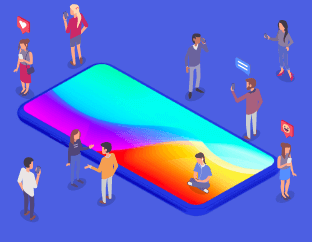
See how today’s top brands use CleverTap to drive long-term growth and retention
Shivkumar M 
Head Product Launches, Adoption, & Evangelism.Expert in cross channel marketing strategies & platforms.
Free Customer Engagement Guides
Join our newsletter for actionable tips and proven strategies to grow your business and engage your customers.



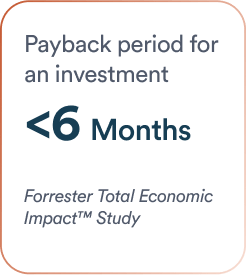


















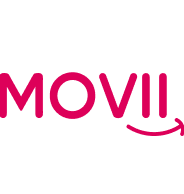











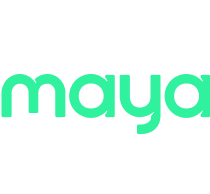





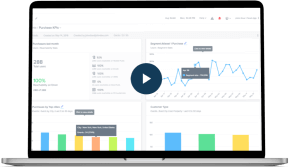



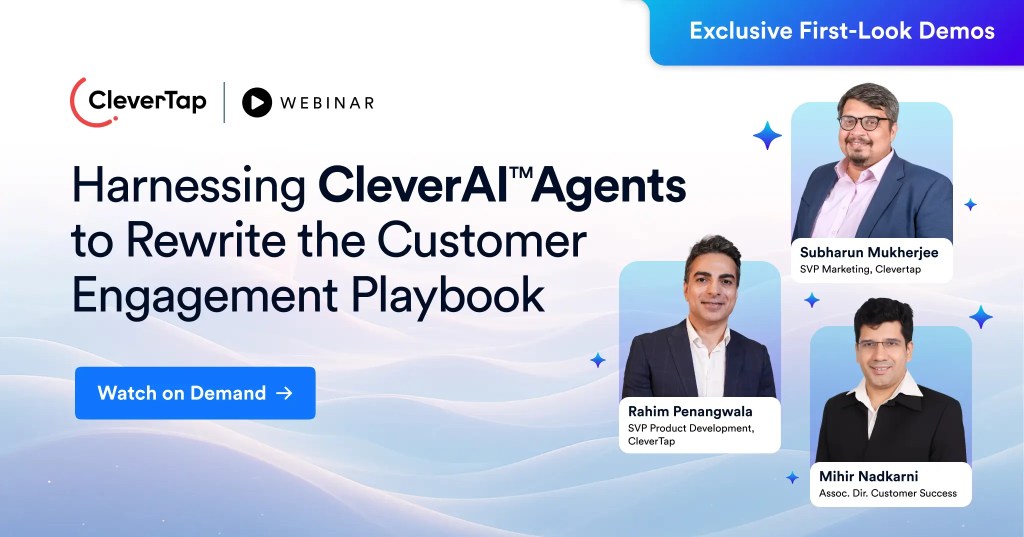
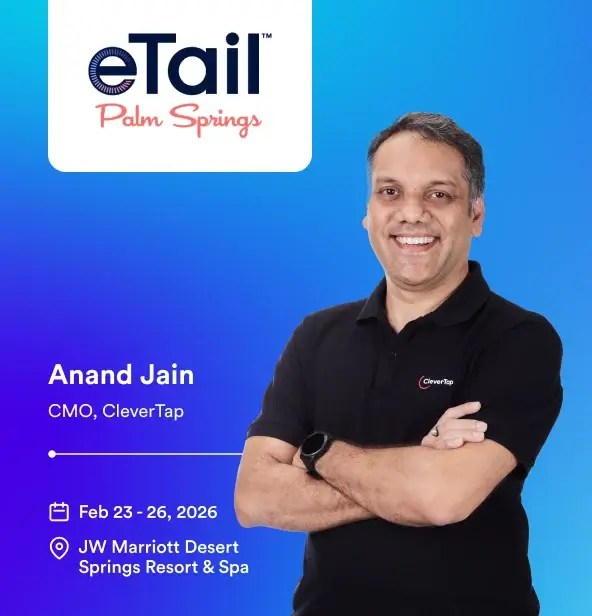
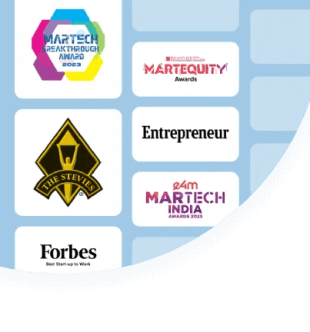
![App vs Website: Which Is Right for My Business? [Infographic]](https://clevertap.com/wp-content/uploads/2019/11/app-vs-website-blog-header1.png?w=1024&w=721)